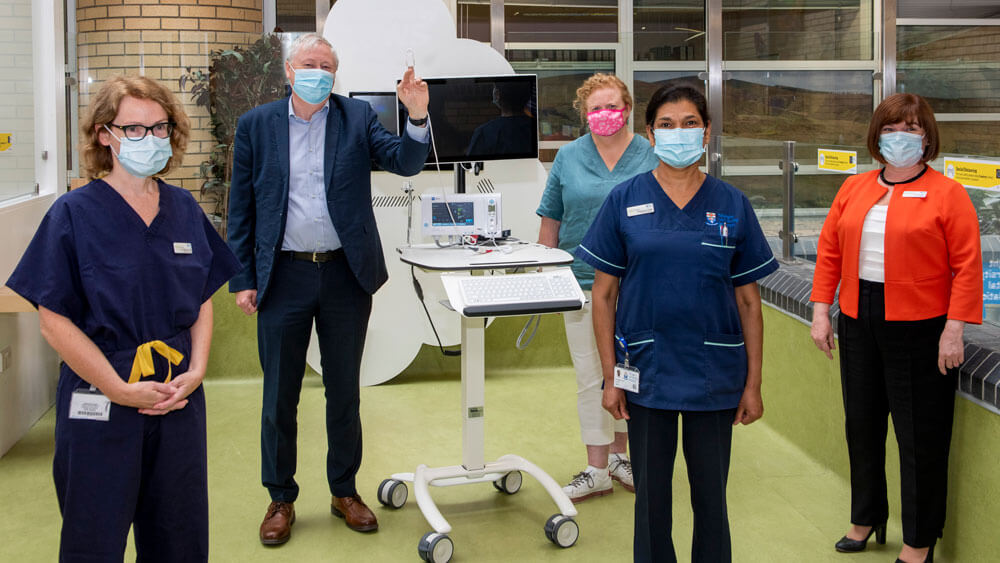A pilot project under which patients’ vital signs are taken electronically has been introduced in the Osborne Ward, a combined medical and renal ward, at Tallaght University Hospital.
The hospital said the electronic system improved accuracy of vital signs recording and automatically calculated the early warning score.
The project is being undertaken in partnership with the HSE digital transformation team. TUH was awarded an ‘Our Public Service’ innovation award to assist the delivery of this project.

Credit – TUH Medical Photography
Hospitals use the National Early Warning Score (NEWS) which is a guide that determines the degree of illness of a patient and determines how often their vital signs need to be checked.
“A change in the NEWS can indicate early detection of infection or sepsis, and an increase of the score prompts medical review. Previous studies have shown that staff can make errors when manually calculating the EWS, this can lead to delayed or inappropriate escalation of patient care.”
Commenting on the rollout in TUH Professor Catherine Wall, Consultant Nephrologist and Director of Quality Safety & Risk Management said “Our hospital is always busy with staff required to continuously make decisions about patient care. We are open to any innovative use of technology that will benefit our patients. The introduction of this technology is another major step in the rollout of the electronic patient record in TUH and an aid to help staff with patient rounds, reducing repetitive data entry and possible errors that may be made.”
Elsamma Philip, Clinical Nurse Manager on the Osborne Ward “said, From a nursing perspective this is really helpful technology. It will save us valuable time in having to write down the observations as they are automatically recorded. There is less chance of error in transcribing the numbers to a patient chart or those being misread by another member of the patient’s care team. It will give nurses valuable time back to spend time with patients.”
Professor Martin Curley, Director of Digital Transformation at the HSE has said “We were delighted to partner with TUH, the first model IV hospital in Ireland to adopt vital signs automation (VSA) and also to acknowledge the DEPR Innovation fund for co-funding the deployment. The leading work at TUH has helped inform a planned deployment of VSA to multiple hospitals across the country which will commence later this year. Additionally the top down support from TUH CEO Lucy Nugent makes TUH a great place to digitally innovate with”.

